Opossum Diseases
Like every animal, opossums get sick. While typically, unless cornered, opossums are a generally safe animal, when they are sick they can become aggressive and are far more dangerous. This danger is amplified by the fact they carry diseases that are easily transmitted to humans and our pets. The diseases that opossum are able to transmit to people can be transmitted in a few different ways. The most common way an illness can be transmitted is through contact of some sort with their urine and feces.
The most common infection that a human can receive from an opossum is leptospirosis. This disease can be mild and have no more than flu-like symptoms in most people. In other cases, however, it can cause kidney damage, meningitis, and even death.
Another illness they are likely to pass on to people is salmonella. You probably recognize this as the bacteria that causes food poisoning.
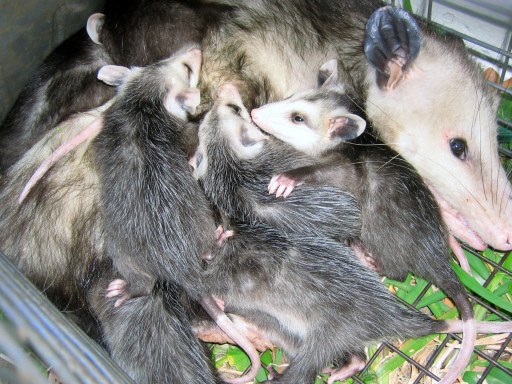
For most people, salmonella will cause an acute bout of diarrhea and vomiting. The elderly and the very young, however, could find themselves with a more extreme case of the illness. One of the possible side effects of this includes reactive arthritis.
Some of the other diseases that people can get from opossums include:
- Tuberculosis
- Relapsing fever
- Tularemia
- Spotted fever
- Toxoplasmosis
As stated before, humans are not the only creatures at risk of developing a disease after being in contact with an opossum. Pets may catch a number of diseases that could become incredibly serious.
Coccidiosis is one of these diseases that your pet is likely to catch. This condition is transmitted via the feces of opossums and causes problems like diarrhea. When a diseased opossum defecates in your yard your pet is likely to be curious and will check it out. From smelling and ingesting the feces the animal is likely to pick up their illness.
Should the opossum have been infected with tularemia it is possible this disease can be passedalong to your pets as well. This disease can lead to several issues, including:
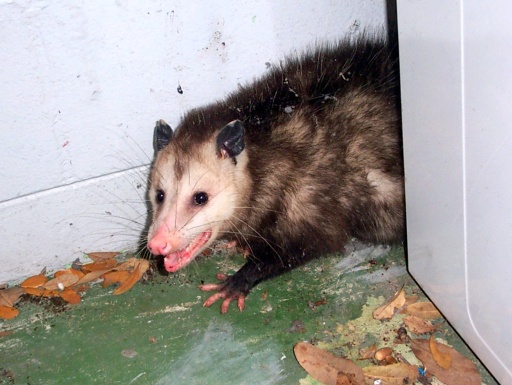
- Respiratory problems (troubled, labored breathing)
- Glandular issues
- Skin ulcers
If you keep larger animals like horses, opossums can also carry equine protozoal myeloencephalitis (EPM). The parasite that causes this serious disease is most at home in opossums, though they too got it from another animal. They will typically get it from being in contact with the urine and feces of cats, raccoons, skunks, armadillos, and even animals like harbor seals and sea otters.
Once the parasite enters the opossum it becomes infective to horses, which is the parasite’s ultimate goal. If your horse becomes infected by EPM the symptoms you can expect are:
- Ataxia, spastic movement, abnormal gait, or lameness
- Weakness which worsens going up or down slopes
- Muscle atrophy
- Paralysis of the eyes, face, or mouth
- Difficulty swallowing
- Seizures or collapse
- Abnormal sweating
- A loss of sensation
- Poor balance
Despite this fairly long list of serious illnesses that can be caused by opossums, they actually have a fairly robust immune system that keeps them protected from most illnesses. This is because their body temperature is significantly lower than that of most other species. This also helps to limit the number of diseases that opossums can carry. This difference in body temperature is also believed to be the reason that rabies and snake bites typically have little to no effect on opossums.
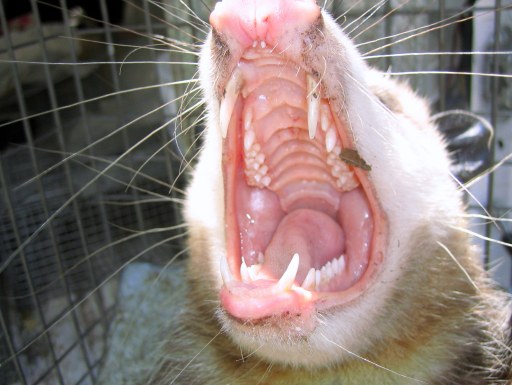
If you are planning on dealing with an opossum yourself, whether or not it is sick, you should proceed with extreme caution. Your best option will be to trap the animal so that you can either kill it humanely or release it elsewhere if it is legal to do so in your area.
One tip to ensure you will be able to capture the animal is to use a tactic known as pre-baiting. When pre-baiting your trap you will not arm it. You will simply place bait like fruits, fish, meat, and even pet food to entice the animal into the trap and let it develop a sense of security. Once the animal is accustomed to eating food it finds in the trap, you can then arm the trap and you should have a much higher likelihood of capturing the animal.
If you must clean up the feces and urine of a diseased opossum, it is important to realize you must take a number of precautionary steps. As with many animals, you are going to want to be wearing a respirator of some kind, goggles, long sleeve clothing, and gloves. Doing this should help keep you safe and protect you from becoming ill.
Select Your Animal

Raccoons
Raccoon Removal Information & How-To Tips
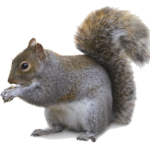
Squirrel
Squirrel Removal Information & How-To Tips
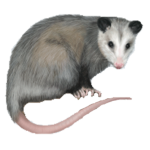
Opossum
Opossum Removal Information & How-To Tips
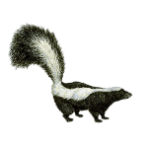
Skunks
Skunks Removal Information & How-To Tips
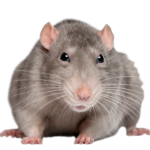
Rats
Rat Removal Information & How-To Tips
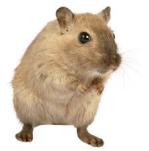
Mouse
Mouse Removal Information & How-To Tips
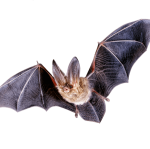
Bat
Bat Removal Information & How-To Tips
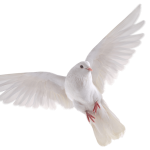
Bird
Bird Removal Information & How-To Tips
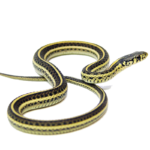
Snake
Snake Removal Information & How-To Tips
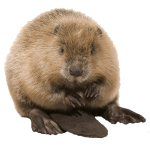
Beaver
Beaver Removal Information & How-To Tips
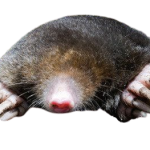
Mole
Mole Removal Information & How-To Tips
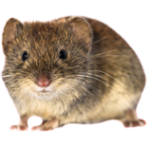
Vole
Vole Removal Information & How-To Tips

Gopher
Gopher Removal Information & How-To Tips
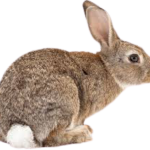
Rabbit
Rabbit Removal Information & How-To Tips
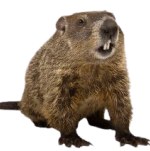
Woodchuck
Woodchuck Removal Information & How-To Tips
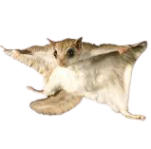
Flying Squirrel
Flying Squirrel Removal Information & How-To Tips
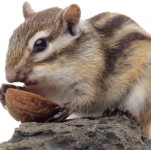
Chipmunk
Chipmunk Removal Information & How-To Tips
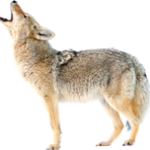
Coyote
Coyote Removal Information & How-To Tips
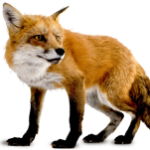
Fox
Fox Removal Information & How-To Tips
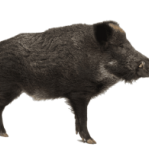
Wild Hog
Wild Hog Removal Information & How-To Tips
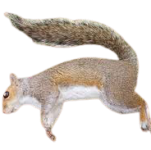
Dead Animal
Dead Animal Removal Information & How-To Tips